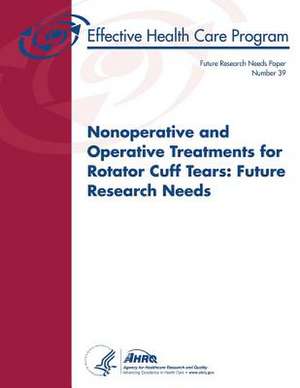Nonoperative and Operative Treatments for Rotator Cuff Tears
Autor U. S. Department of Heal Human Services, Agency for Healthcare Resea And Qualityen Limba Engleză Paperback
Preț: 92.24 lei
Preț vechi: 97.09 lei
-5% Nou
Puncte Express: 138
Preț estimativ în valută:
17.66€ • 19.18$ • 14.84£
17.66€ • 19.18$ • 14.84£
Carte indisponibilă temporar
Doresc să fiu notificat când acest titlu va fi disponibil:
Se trimite...
Preluare comenzi: 021 569.72.76
Specificații
ISBN-13: 9781492204596
ISBN-10: 1492204595
Pagini: 68
Dimensiuni: 216 x 280 x 4 mm
Greutate: 0.18 kg
Editura: CREATESPACE
ISBN-10: 1492204595
Pagini: 68
Dimensiuni: 216 x 280 x 4 mm
Greutate: 0.18 kg
Editura: CREATESPACE
